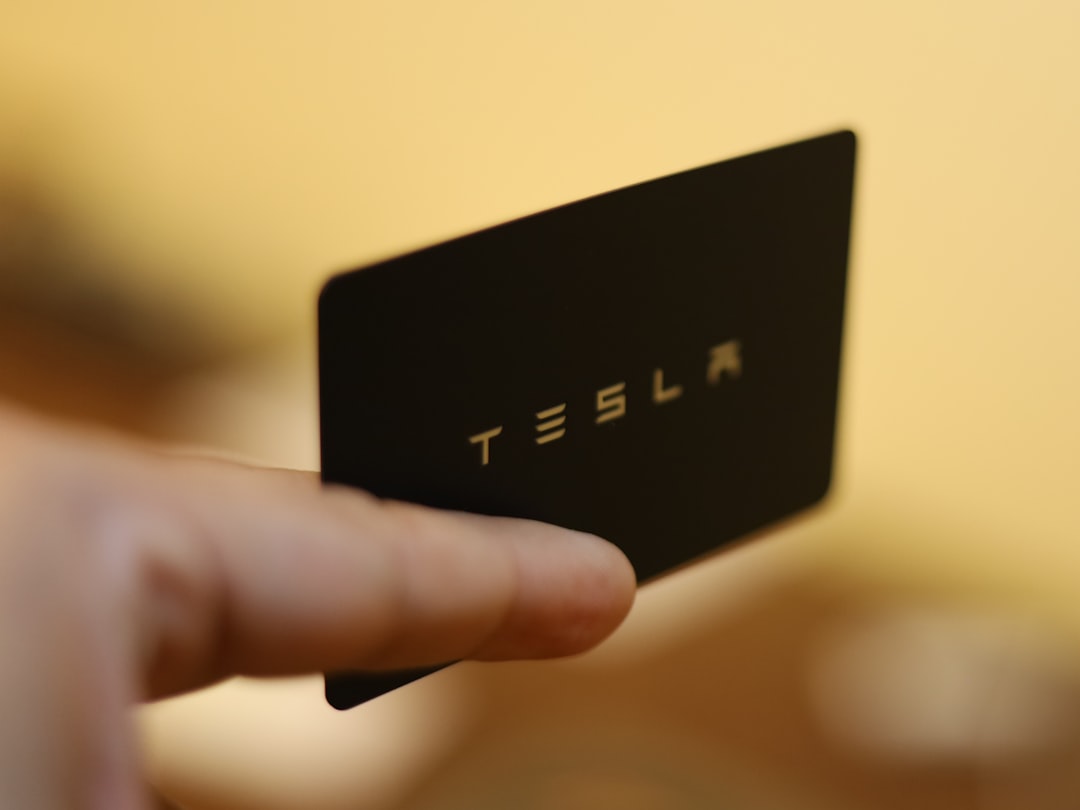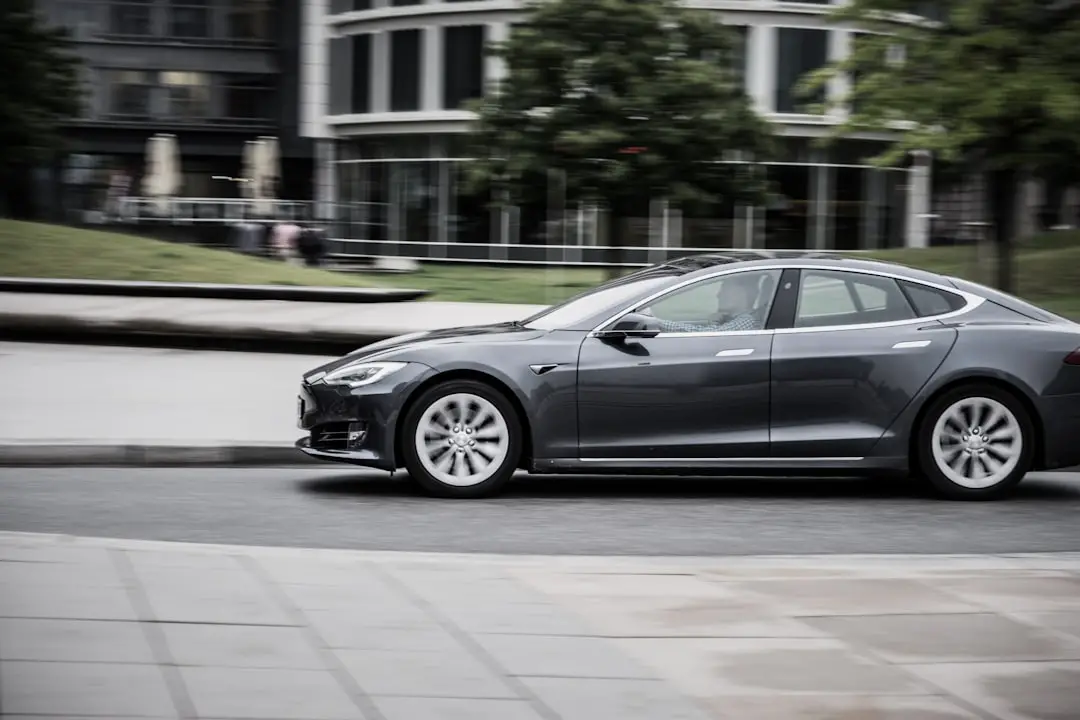Support our educational content for free when you purchase through links on our site. Learn more
Does Leasing a Tesla Qualify for Tax Credit? 7 Key Insights 🚗 [2025]
When it comes to electric vehicles, Tesla stands at the forefront of innovation and sustainability. But if you’re considering leasing one of these sleek machines, you might be wondering: Does leasing a Tesla qualify for tax credit? The answer isn’t as straightforward as you might think! In this article, we’ll dive into the intricacies of EV tax credits, particularly how they apply to leasing a Tesla.
Did you know that leasing an electric vehicle can sometimes offer more financial benefits than buying? Many consumers are unaware that they can potentially save thousands through federal and state incentives, even when leasing! As we explore this topic, we’ll uncover the nuances of tax credits, the advantages of leasing, and what you need to know to maximize your savings.
Key Takeaways
- Leasing a Tesla can qualify for federal tax credits, but the credit usually goes to the lessor (the dealership).
- No income limits apply for lessees, making leasing more accessible than purchasing.
- State-specific incentives can further enhance your savings when leasing an EV.
- The EV lease loophole is currently under scrutiny, so staying informed is crucial.
- Leasing offers lower monthly payments and access to the latest models without long-term commitments.
- Research and negotiate lease terms to ensure you benefit from available tax credits and incentives.
- Stay updated on legislative changes that could impact the future of EV tax credits.
Ready to explore the world of Tesla leasing and tax credits? Let’s dive in!
Table of Contents
Quick Tips and Facts
Understanding EV Tax Credits: A Deep Dive
Do You Get the Federal EV Tax Credit If You Lease a Tesla?
The EV Lease Tax Credit Loophole Explained
Leasing vs. Buying an Electric Vehicle: Which is Right for You?
Are EV Lease Deals Making Electric Vehicles More Affordable?
Is the EV Lease Loophole Going Away? What You Need to Know
How to Maximize Your EV Tax Credit When Leasing
State-Specific EV Incentives: What You Should Know
Common Misconceptions About EV Tax Credits
Tips for Navigating the EV Leasing Process
Conclusion
Recommended Links
FAQ
Reference Links
Quick Tips and Facts
- Leasing a Tesla can qualify for federal tax credits under certain conditions, making it a financially savvy option for many.
- The tax credit typically belongs to the lessor (the dealer), not the lessee (you), but savings can be passed on as lower lease payments.
- Income limits do not apply to lessees, which is a significant advantage compared to purchasing.
- Leased EVs are classified as commercial vehicles, allowing them to bypass some stringent requirements for tax credits.
- State-specific incentives may also apply, so check local regulations for additional savings.
- The EV lease loophole is under scrutiny, with potential changes that could affect future eligibility.
Understanding EV Tax Credits: A Deep Dive
What Are EV Tax Credits?
Electric Vehicle (EV) tax credits are incentives offered by the federal government to encourage the adoption of electric vehicles. Under the Inflation Reduction Act (IRA), eligible buyers can receive up to $7,500 for qualifying new and used “clean vehicles.” This initiative aims to reduce carbon emissions and promote cleaner transportation options.
How Do They Work?
- Eligibility: To qualify for the tax credit, the vehicle must meet specific criteria, including being a new or used electric vehicle.
- Claiming the Credit: If you purchase an EV, you can claim the credit when filing your taxes. However, if you lease, the credit typically goes to the dealer.
Key Points to Remember
- Tax credits can significantly reduce the overall cost of leasing or purchasing an EV.
- Check eligibility criteria to ensure you qualify for the maximum benefits.
Do You Get the Federal EV Tax Credit If You Lease a Tesla?
Yes, leasing a Tesla can qualify for the federal EV tax credit, but there are nuances to consider.
How the Process Works
- Tax Credit Ownership: The tax credit belongs to the lessor (the dealership), not you. However, many dealerships pass on the savings to lessees through lower monthly payments.
- Commercial Vehicle Classification: Leased EVs are often classified as commercial vehicles, which can simplify eligibility for the tax credit, bypassing some of the stricter requirements related to battery sourcing and manufacturing.
Benefits of Leasing a Tesla
- Lower Monthly Payments: Leasing typically results in lower monthly payments compared to buying.
- Access to New Technology: Leasing allows you to drive the latest models with cutting-edge technology.
- Warranty Coverage: Most leases include warranty coverage, reducing repair costs.
The EV Lease Tax Credit Loophole Explained
The EV lease tax credit loophole refers to the classification of leased electric vehicles as commercial vehicles under the IRA. This classification allows lessees to benefit from the federal tax credit without meeting all the stringent requirements that apply to purchased vehicles.
Why is This Important?
- No Income Limits: Unlike purchasing, leasing does not impose income limits on the lessee, making it accessible to a broader audience.
- Potential Savings: If the dealership passes on the savings from the tax credit, you could see a reduction in your lease payments.
Current Status
- The loophole is currently under scrutiny, with lawmakers considering changes that could eliminate this benefit. Keep an eye on legislative updates to stay informed!
Leasing vs. Buying an Electric Vehicle: Which is Right for You?
Choosing between leasing and buying an EV can be a tough decision. Here’s a breakdown of the pros and cons of each option:
| Aspect | Leasing | Buying |
|---|---|---|
| Monthly Payments | Generally lower | Higher monthly payments |
| Ownership | No ownership; return at lease end | Full ownership after payment |
| Maintenance | Often covered under warranty | You bear maintenance costs |
| Flexibility | Easier to switch vehicles | Harder to sell or trade |
| Tax Credits | Credit goes to lessor | You receive the tax credit |
Pros of Leasing
- Lower upfront costs and monthly payments.
- Access to newer models every few years.
- Warranty coverage typically included.
Cons of Leasing
- No ownership at the end of the lease term.
- Mileage limits may apply, leading to extra fees if exceeded.
Are EV Lease Deals Making Electric Vehicles More Affordable?
Absolutely! With manufacturers like Tesla reducing prices on models, leasing has become a more attractive option for consumers.
Factors Contributing to Affordability
- Price Reductions: Tesla and other manufacturers have slashed prices, making models eligible for the full $7,500 federal tax credit.
- Incentives: Many states offer additional incentives for leasing EVs, which can further lower costs.
Current Trends
- Increased Popularity: Data shows that over 40% of electric vehicles were leased last April, indicating a growing trend in the market.
- Lease Cash and Bonuses: Terms like “lease cash” or “EV lease bonus” refer to additional incentives that can reduce your lease cost.
Is the EV Lease Loophole Going Away? What You Need to Know
The future of the EV lease loophole is uncertain, with potential legislative changes on the horizon.
Current Legislative Landscape
- House GOP lawmakers are considering eliminating the loophole, which could save the government billions.
- Changes would require congressional approval, so it’s essential to stay informed about potential impacts on your leasing options.
What Should You Do?
- Stay Updated: Follow news related to EV tax credits and leasing regulations.
- Consider Timing: If you’re thinking about leasing, it may be wise to act sooner rather than later to take advantage of current benefits.
How to Maximize Your EV Tax Credit When Leasing
To get the most out of your EV tax credit while leasing, consider the following tips:
- Research Eligible Vehicles: Ensure the vehicle you’re interested in qualifies for the tax credit.
- Negotiate Lease Terms: Discuss with your dealer how they plan to pass on the tax credit savings.
- Explore State Incentives: Check for additional state-specific incentives that can complement your federal tax credit.
Additional Resources
- IRS Clean Vehicle Credit: For detailed information on federal tax credits.
- State Incentives: Check your state’s offerings for EV incentives.
State-Specific EV Incentives: What You Should Know
Different states offer various incentives for leasing or purchasing EVs. Here’s a quick overview of some notable programs:
| State | Incentive Type | Amount |
|---|---|---|
| California | Rebate for new EVs | Up to $7,000 |
| Colorado | Tax credit for leasing | Up to $3,500 |
| New York | Rebate for new EVs | Up to $2,000 |
Why Check State Incentives?
- Additional Savings: State incentives can significantly reduce the overall cost of leasing an EV.
- Eligibility Requirements: Each state has different eligibility criteria, so it’s essential to do your homework.
Common Misconceptions About EV Tax Credits
Myth: You Can Only Get the Tax Credit If You Buy
Reality: You can also benefit from tax credits when leasing, as long as the dealership passes on the savings.
Myth: Tax Credits Are Only for High-Income Earners
Reality: Income limits apply to purchases, but not to leases, making them accessible to a broader audience.
Myth: All Electric Vehicles Qualify for the Full Tax Credit
Reality: Not all EVs qualify for the full credit; it depends on the model and its specifications.
Tips for Navigating the EV Leasing Process
- Do Your Research: Understand the models available and their eligibility for tax credits.
- Negotiate: Don’t hesitate to negotiate lease terms and inquire about any available incentives.
- Read the Fine Print: Ensure you understand the terms of the lease, including mileage limits and maintenance responsibilities.
Final Thoughts
Navigating the world of EV leasing can be complex, but with the right information, you can make informed decisions that benefit your wallet and the environment.
Conclusion

Leasing a Tesla can be a smart financial move, especially with the potential for tax credits and state incentives. As the landscape of EV leasing continues to evolve, staying informed and proactive will help you maximize your savings.
Recommended Links
- Latest Car Lease Deals
- Car Lease Basics
- Electric Vehicle Leases
- Credit Score and Car Leasing
- Auto Financing Options
FAQ

Q: Can I get the tax credit if I lease a used Tesla?
A: Yes, but eligibility depends on specific criteria. Check with your dealer for details.
Q: What happens if the loophole is closed?
A: If the loophole is eliminated, leasing may become less financially advantageous, so consider acting sooner.
Reference Links
- Kiplinger on EV Lease Tax Credit Loophole
- Consumer Reports on Leasing EVs
- Colorado Energy Office on EV Tax Credits
Conclusion

In summary, leasing a Tesla can be a fantastic option for those looking to embrace electric vehicle technology while also benefiting from potential tax credits. The positives of leasing include lower monthly payments, access to the latest models, and the ability to avoid long-term commitments. Additionally, the tax credit loophole allows lessees to enjoy significant savings, as the tax credit typically belongs to the lessor but can be passed on to you in the form of reduced lease payments.
However, there are negatives to consider, such as mileage limitations and the fact that you won’t own the vehicle at the end of the lease term. Moreover, the future of the EV lease loophole is uncertain, which could impact the financial advantages of leasing in the coming years.
Overall, if you’re looking for a flexible and cost-effective way to drive a Tesla, we confidently recommend exploring leasing options. Just make sure to stay informed about any legislative changes that may affect your eligibility for tax credits!
Recommended Links
- 👉 Shop Tesla Models on: Tesla Official Website
- Explore Latest Car Lease Deals on: Latest Car Lease Deals
- Learn About Car Lease Basics on: Car Lease Basics
- Check Electric Vehicle Leases on: Electric Vehicle Leases
- Understand Credit Score and Car Leasing on: Credit Score and Car Leasing
- Discover Auto Financing Options on: Auto Financing Options
FAQ

Can I claim a tax credit if I lease a Tesla?
Yes, you can claim a tax credit when leasing a Tesla, but the credit typically goes to the lessor (the dealership). However, many dealers pass on the savings to lessees, resulting in lower monthly payments.
Read more about “Car Leases: 10 Irresistible Offers You Can’t Miss in 2025! 🚗✨”
Does the federal tax credit apply to Tesla leases?
Yes, the federal tax credit applies to Tesla leases as long as the vehicle qualifies under the guidelines set by the Inflation Reduction Act. The credit can significantly reduce your leasing costs if the dealer passes the savings on to you.
Read more about “Discover the 10 Best Tesla Lease Deals for 2024 That Will Make You Say “Wow!” 🚗✨”
What are the tax benefits of leasing a Tesla versus buying?
Leasing a Tesla offers several tax benefits, including:
- Lower upfront costs and monthly payments.
- No income limits for the lessee, unlike purchasing.
- The ability to drive a new vehicle every few years without the long-term commitment of ownership.
Read more about “Can You Lease a Car and Not Buy It? 7 Essential Insights 🚗 …”
How does the Inflation Reduction Act affect tax credits for Tesla leases?
The Inflation Reduction Act allows leased electric vehicles to be classified as commercial vehicles, making them eligible for the full federal tax credit without strict sourcing requirements. This classification can lead to significant savings for lessees.
Do state tax credits apply to Tesla leases?
Yes, many states offer additional tax credits for leasing electric vehicles, including Teslas. These credits can vary by state, so it’s essential to check local regulations for specific incentives.
Read more about “Can You Really Lease a Tesla for 3 Months? 7 Insider Tips to Know! ⚡️”
Who receives the tax credit when leasing a Tesla?
The tax credit typically goes to the lessor (the dealership), not the lessee. However, many dealerships pass on the savings to the lessee through reduced lease payments.
Read more about “Unlocking Your Tesla Lease Buyout: 7 Essential Insights 🚗 …”
Are there any income limitations for Tesla lease tax credits?
No, there are no income limitations for tax credits when leasing a Tesla. This is a significant advantage over purchasing, where income limits may apply.
Read more about “Tesla Lease vs Buy: Which Option is Right for You? … 🚗💸”


